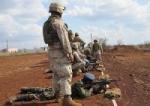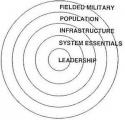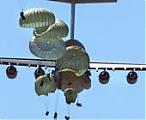Looking for some feedback on former CIA Director William Colby's Lost Victory. I finished the book about 3 weeks ago and found it to be among the most informative and optimistic books on the Vietnam War with respect to understanding the U.S. role in the war, our many mistakes, and probably most important, how we eventually learned from these mistakes in developing a joint-pacification effort that some say led to the war being all but won by 1971-1972.
I'm not a Vietnam expert by any stretch, but did find this book, as well as Lewis Sorley's A Better War convincing in describing what could have been had we not completely pulled out militarily and cut off funding. Both books paint a very different picture of the war than others that generally focus on all things during and before the Tet Offensive.
Colby made an interesting point about how the Easter Offensive validated our success (and that of the South Vietnamese Government) because the North Vietnamese were left with little choice but to attack conventionally because the communist infrastracture in South Vietnam had been mostly destroyed by 1972. He argues this was even more the case after all three NVA conventional thrusts were defeated or fought to a stalemate during the Easter Offensive. He goes on to say that things in South Vietnam would have turned out very differently had the U.S., in 1972-1973, guaranteed the country's security from conventional external threats, much like we did when signing security alliances with South Korea and Japan.
Anybody out there with experience on the ground in Vietnam or Vietnam history experts in general that can shed some light on Colby's book?
I'm particularly interested because I see many parallels between how he describes Vietnam in 1968-1969 and where we're at in Iraq today (i.e., just now seriously embracing a pacification effort, making progress on inter-agency cooperation, really trying counterinsurgency, etc. all with decreasing political support on the homefront).




 Reply With Quote
Reply With Quote






Bookmarks